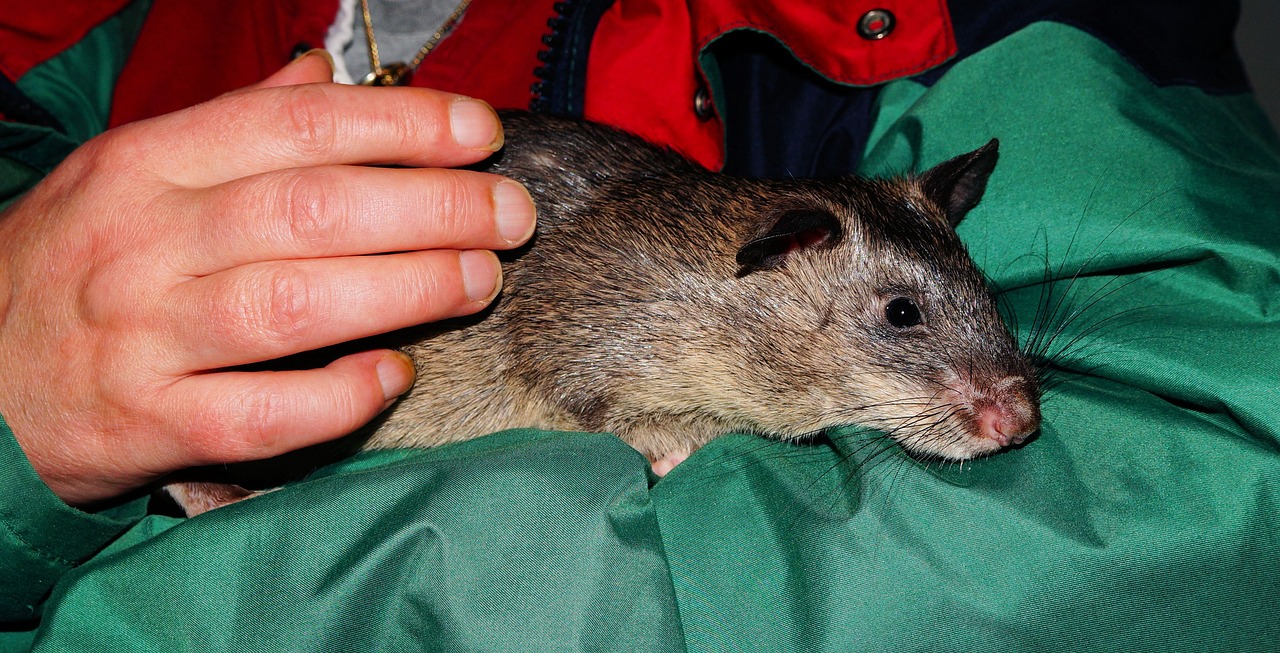An Unexpected Hero
No doubt, you’re familiar with the heroic feats of search and rescue dogs— their remarkable abilities to locate people following a natural disaster, to detect cancer, uncover hidden drugs, or even anticipate seizures. These incredible skills, however, are not exclusive to our canine companions. Enter an unexpected hero— the rat.

Since 2021, APOPO, a Belgian-based organization operating out of Tanzania, has been diligently working with African Giant Pouched rats. Their mission? To train these creatures to find survivors trapped in rubble following an earthquake. The researchers chose rats due to their long life span (living 8-10 years), sharp sense of smell, trainability, and size, which allows them to navigate through tight spaces in rubble sites that search and rescue dogs or other technologies can’t access. These rats are no strangers to life-saving work, having been previously trained to detect landmines and diagnose tuberculosis. Yet, this venture into search and rescue takes their training to new terrain.
How It Works: The Training Process
The rats undergo a rigorous training process using positive reinforcement to encourage a set of behaviors: locating a human, signaling the find, and returning to the starting point. Training starts in a basic environment and becomes increasingly complex, mimicking the conditions of a collapsed building. By rewarding the rats at each training stage, the trainers boost the likelihood of these behaviors being replicated.
Once a rat successfully locates a human, it signals the find using a specially designed vest. The vest features a ball on its collar that houses a microswitch. When the rat pulls the ball, it triggers the microswitch and emits a beep. This complex behavior isn’t innate; it’s cultivated through a training method known as ‘shaping,’ which starts with rewarding the rats for simply touching the ball and gradually conditioning them to pull it.
Despite the ongoing challenges in establishing reliable tracking and communication technology in GPS-inaccessible locations, it is hoped these highly trained rats will soon be deployed in real-world search and rescue missions. You can see the rats in action in this video: Rats for Earthquake in Turkey – Rats with Backpacks Could Help Rescue Earthquake Survivors.
The Psychological Angle
So, you may wonder, what does this have to do with psychology? As you know, psychologists are interested in learning and behavior, and the training of these rats provides a compelling illustration of fundamental principles of learning that are central to the field of psychology. The method used here, positive reinforcement, is a key concept in operant conditioning, a type of learning in which behavior is strengthened or weakened by the use of rewards or punishments. As you’ll discover, operant conditioning not only teaches rats to locate earthquake survivors, but it’s also the learning principle that helped you master potty training and the habit of completing your homework assignments.